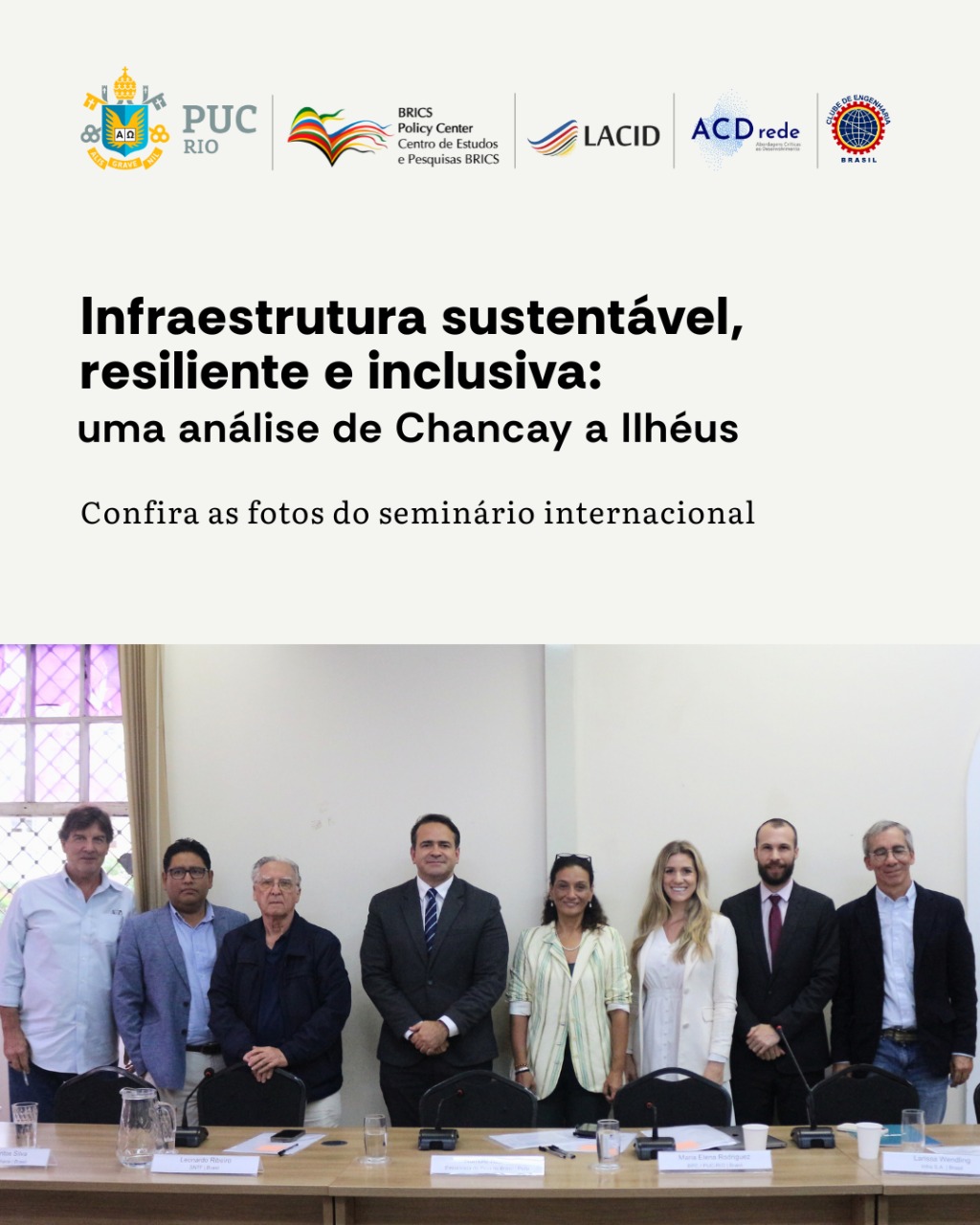
Sustainable, resilient and inclusive infrastructure: an analysis from Chancay to Ilhéus
The BRICS Policy Center (BPC)/PUC-Rio, in collaboration with the Brazilian Engineering Club, organized the international seminar “Sustainable, Resilient, and Inclusive Infrastructure: An Analysis from Chancay to Ilhéus” on August 15th. The event brought together experts, civil society representatives, and public policymakers to discuss the reconfiguration of trade routes in South America and China’s growing role in this process.
The seminar’s main objective was to present studies and proposals for initiatives capable of mitigating the effects of new global trade routes on climate change and social development, as Latin America seeks to expand its regional integration.
The first panel, titled “Sustainable, Inclusive, and Resilient Infrastructure,” was moderated by Marta Fernández, director of the BPC, and featured Maria Elena Rodríguez (IRI/PUC-Rio and deputy director of the BPC), Brent Millikan (Socio-Environmental Infrastructure Working Group), and Cesar Gamboa (Law, Environment, and Natural Resources of Peru). The panelists discussed strategies for implementing infrastructure projects that prioritize ecosystem protection, address the lack of basic services, and strengthen climate resilience, without compromising the environment or local communities.
The second panel, “From Ilhéus to the Port of Chancay: An Economic, Geopolitical, and Socio-Environmental Analysis,” was moderated by Maria Elena Rodríguez and focused on the potential of the Port of Chancay, Peru, as a strategic hub for relations between Latin America and Asia, with an emphasis on the role of China. Participating in this debate were Leolino Dourado (University of the Pacific), Rómulo Acurio (Ambassador of Peru in Brazil), Ibá dos Santos Silva (Engineering Club), Leonardo Ribeiro (National Secretariat of Railway Transport), Larissa Wendling (Superintendent of Projects-Infra S.A.) and Rui Rocha (State University of Santa Cruz).
The discussion focused on the economic, environmental, and social impacts of new global trade routes, highlighting the analysis of the Port of Chancay and the role of Brazilian institutions in the development of a bioceanic railway that will connect the Peruvian port to Ilhéus, Bahia, with significant Chinese participation in the financing and execution of these logistics integration projects.
Check out the recording of the eevent in the button below.
Watch here

